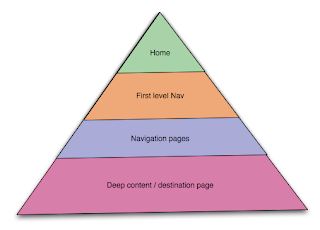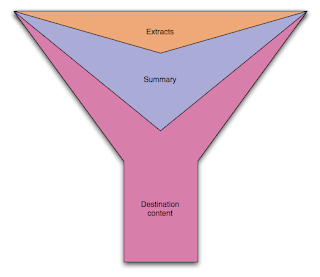Thanks to Yandle and the UXBri group (oh, and iCrossing) for an excellent night last night. Two really intriguing presentations into the use of field research techniques in creating user-oriented products.
Erosion or defence
Simon Johnson's presentation of how evidence from the field can drive interface designs that really meet the needs of local user communities, and moreover a client's acceptance of those designs, was pretty inspiring.
What was clear from his case study was that his was a project where the research genuinely followed through into the design and development decisions that were made, and that the evidence gathered through close and sustained contact with the user communities enabled that to happen.
The end result was an excellent pull of data (from Environment Agency sources, historical documents, local contributors) into visual display arena (a dynamic map) to create a usable interface that leverages new web techniques and interfaces (speech bubbles, zooming etc.) and traditional cartography skills (simplification, abstraction and detail). Plus an invaluable branding u-turn from 'Coastal Erosion Risk' to 'Coastal Erosion Defence'. Perfect.
And the structure of the site was one that had clearly moved forward from the original rule of the pyramid:

Through the marketing style funnel (with the search engine acting as a pointer):

To a usage-focused webbed model, where all the user has to do is locate their nearest node to access links to explore a connected web of information:

The heirachical source of the information - it's structure - is subjugated, and the point-of-request takes it's place in the architecture of the site. The information becomes a servant to the site, not it's master. Lovely stuff.
Mobile services unleashed
Next up, Miles Rochford, interaction designer at Nokia, with tales of 'rapid ethnography' around the world.
Firstly, whatever you call it, getting into the places where people use stuff is going to give you real clarity on what you need to achieve - Miles referred to the importance of empathy - especially when those people have significantly different contexts to your own.
Designing for use by demographic groups whose goals and experience differ from your own should be done with due respect(and obviously is in the case of Nokia). One very negative thing that Apple has given us is the anecdote of the 'undesigned iPod' (Basically, the iPod is presented as an example of a highly successful interaction design that was achieved without user research or testing - but the arguement is that the target user group was identical to the design team demographic, and that the prototyping cycle *is* user testing). Miles' notion of the 'self designed' interface presented the issue well: Getting out to meet users is a valuable excercise in humility.
There was clearly more to their process than just a few interviews overseas, and in allusions to discoveries about the mental models of digital space for mobile-only users, Miles and his team are clearly very intelligent and personally driven to seek out wider understandings that can be gained by narrow scenarios.
So thank you both, your work is inspiring.
Controlling vocabulary
But there still is a question? Is it ethnography.
In the room, looking at the projects, it seems fickle to care - call it cookery if you like it's all great research.
But there is a point in restraining the names of our techniques and we don't necessarily do ourselves any favours by trying to label our work as something it isn't.
Ethnography is vast. There are principles and ethics involved in conducting ethnographic research. It implies a relationship so embedded as to be potentially disruptive. And why do we need it?
Why not have 'field research', 'community personas', 'in-depth studies'. None of these are borrowed from another field - none of them come with connotations that bind the hands of the practioner or discourage the unitiated. We always push for plain English, so why use a specialised, shoe-horned in term when 'field studies' etc. is more readily understood and accurate?
And why do we, as a profession, need to appropriate all this terminology anyway? Don't we feel respected without referencing an older, more established vein?
Heuristic Evaluation - from psychology
Architecture - from software development
and now Ethnography. We use them to describe what we do, to lend it gravitas, but then we end up having to explain it to clients and colleagues amd spend endless hours online and off debating their appropriateness. If we are sure of our skills, then we should state them clearly, in our own terms.
Either way, the techniques and findings demonstrated in the talks restored my faith in 'getting things done' so, bravo!
See: http://uxbrighton.org.uk/from-ethnography-to-design for more details and images from the night (and iCrossing's plush offices!).



1 comment:
Hi! Your blog is simply super. you have create a differentiate. Thanks for the sharing this website. it is very useful professional knowledge. Great idea you know about company background. Increasing your web traffic and page views Add, add your website in www.directory.itsolusenz.com/
Post a Comment